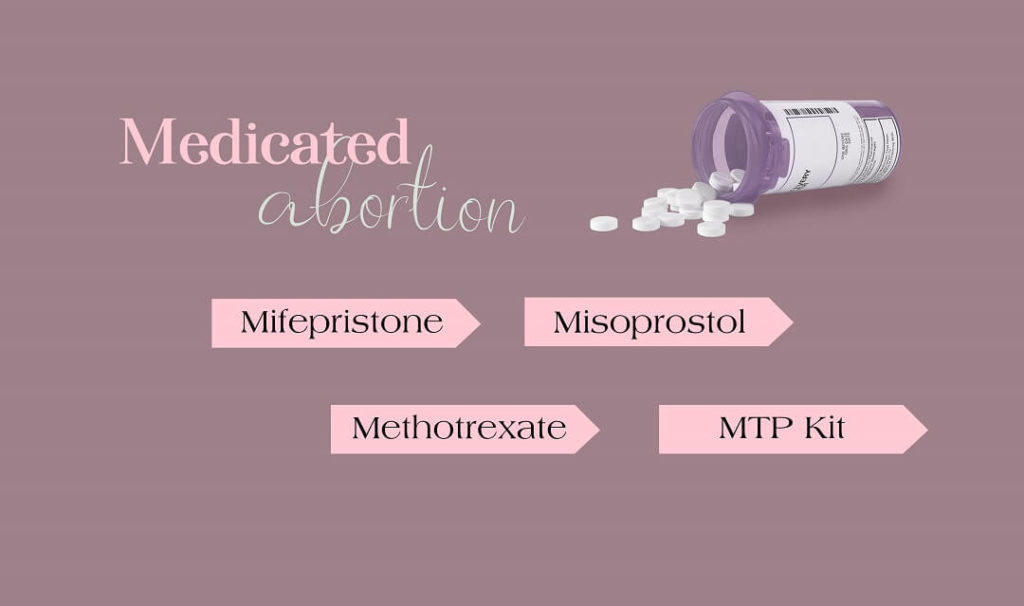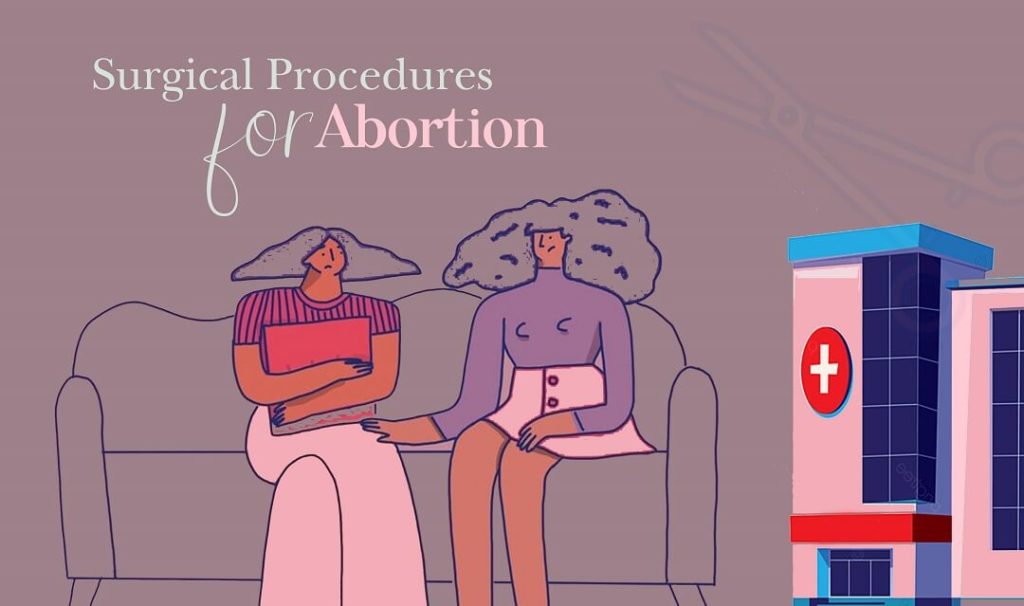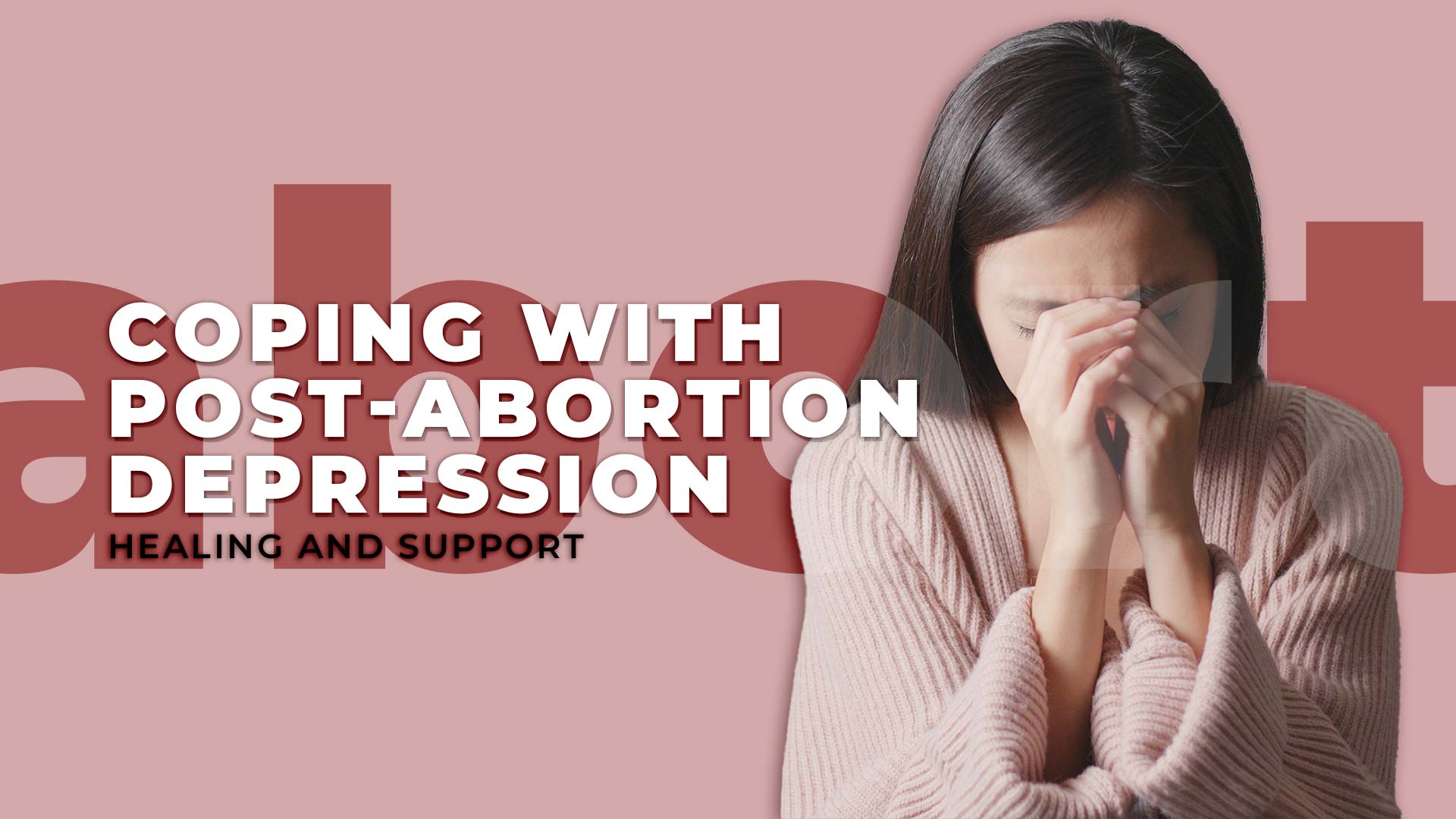Deciding to abort a pregnancy is already difficult and on top of that, having to choose a method for undergoing it can be overwhelming. Which form of abortion method will be suitable for you depends on various factors such as how far along you are in pregnancy, your overall health condition. Terminating a pregnancy with the use of abortion pills is preferred over other methods because it can be carried out in the comfort of your home.
Abortion is an artificially induced removal of fetal tissue from the uterus in case the fetus is unwanted, has deformities, or poses a threat to the life or health of the mother. It can be carried out with the use of medications that result in abortion through vaginal bleeding and expulsion of the uterine contents, or through a surgical procedure that involves manual detachment and removal of the fetal tissue from the uterus. Early pregnancy can be terminated with help of medications, however, as the pregnancy progresses the procedure to end it gets complicated.
Medicated Abortion

Also known as medical abortion, this procedure uses medication to terminate a pregnancy. It is usually employed for early pregnancy, less than 12 weeks, and resembles a natural process of miscarriage. The usually administered medications for achieving this are Mifepristone & Misoprostol. The different types of abortion medications available are mentioned below.
Mifepristone
It is an anti-progestin that stops the action of the hormone progesterone. The hormone progesterone is crucial for the progress of the pregnancy. Mifepristone blocks the action of the progesterone, thus halting the growth of pregnancy and causes the uterine lining to deteriorate. A strength of 200 mg is administered orally for effective results in combination with Misoprostol tablets. When taken alone, Mifepristone is known to result in abortion in 8 do 46 percent of the pregnancies. And, when taken in combination with Misoprostol, the efficacy for abortion increases to more than 90 percent.[1]
The severe complications with the use of Mifepristone or RU-486 are rare.[1] Generally, women experience abdominal pain, uterine cramping, vaginal bleeding, or spotting as side effects. Some less common symptoms associated with the use of Mifepristone are
- Nausea
- Vomiting
- Dizziness
- Fatigue
- Diarrhea
- Fever
Rare complications that have been reported are Pelvic Inflammatory Disease, and incomplete abortion, both of which are manageable through further medications or surgical procedures.
The use of Mifepristone is however contraindicated in certain circumstances.
- If the pregnancy is outside the uterus – ectopic pregnancy.
- If you suffer from hemorrhagic disorders.
- If you have any kidney disorder.
- If you are on corticosteroid medications as a part of long-term treatment.
- If you use blood thinners.
- If you have an intrauterine device.
- If you suffer from an inherited liver disease called porphyria.
Misoprostol
The second tablet to complete the process of abortion is Misoprostol. It is a synthetic prostaglandin that is used to cause an abortion by stimulating uterine contractions. It can be administered on its own, or in combination with Mifepristone or Methotrexate. It is 66 to 90 percent effective on its own in the early stages of pregnancy (up to 8 weeks of gestational age).[2] It is most effective for intended use when used either in the vaginal tract or the sublingual method because the medication is directly absorbed into the bloodstream. It works by dilating the cervix and prompting the contractions of the uterine muscles.
With Mifepristone, 4 tablets should be put either in the buccal cavity, under the tongue, or inside the vaginal tract. When used on its own, 12 tablets of 200 mcg Misoprostol are required to be used for pregnancies up to 12 weeks.
- 4 tablets of Misoprostol should be placed under the tongue, in the buccal cavity, or the vaginal tract and leave them to be dissolved slowly for 30 minutes.
- After 3 hours, the process should be repeated with 4 more tablets.
- And then after another 3 hours, the procedure should be repeated with 4 more tablets.
This process works in up to 90 percent of the cases. However, in the case of a failed attempt, the process with the Misoprostol tablets can be repeated after at least 3 days gap.
The common side effects associated with its use are bleeding and cramping which are heavier than those experienced in the menstrual cycle. The use of Misoprostol is not recommended in the following conditions:
- Known allergies to Misoprostol
- Ectopic pregnancy
- Hypertension
- Glaucoma
- Pelvic infections
- Mitral valve stenosis
- Hemodynamic instability
- Bronchial asthma
- Previous cesarean section delivery
Methotrexate
Methotrexate is an abortifacient medication that can also be administered for ectopic pregnancy. It can be taken either vaginally or via an injection. It is rarely used for elective abortion, however, is still advised for pregnancy that is outside of the uterus. It is effective in early pregnancy, within seven weeks, and can take up to one month for the process of abortion to finish. It works effectively in combination with vaginal Misoprostol.
It may result in nausea, fatigue, dizziness, abdominal pain, fever, liver damage, kidney failure, etc. In severe complications, it may also result in neurological damage. Methotrexate should not be administered along with penicillin, neomycin, aminoglycosides, retinoids, probenecid, cyclosporine, NSAIDs, Omeprazole, etc.
MTP Kit
Recently, the recommended dosages for medical abortion at home come in a combination packaging known as MTP Kit that contains one tablet of 200 mg Mifepristone and 4 tablets of Misoprostol. Orally administered Mifepristone is taken first either at a clinic or at home, and then 4 tablets of the Misoprostol should be placed in the buccal cavity (cheek pouch) or the vagina, and then left for 30 minutes to be absorbed slowly.
Mifepristone first arrests the further growth of the pregnancy by thinning the uterine lining and resulting in detachment of it as in the monthly periods. Misoprostol is then taken 24-36 hours after the dose of Mifepristone, which results in the contraction of the uterus to remove its contents. The whole process of abortion is completed within 72 hours.
Surgical Procedures for Abortion

Surgical abortion is an invasive procedure that is carried out in a clinic under medical professionals’ supervision for pregnancies that have crossed the 12-week duration.
Vacuum Aspiration
This method is usually used during the first trimester and involves the removal and suction of the fetal tissue with help of an aspirator.
- The vaginal area is washed with an antiseptic solution.
- Local anesthesia is then applied or injected into the cervix.
- Cervix is then stretched and kept open withheld of some tools.
- Then, a catheter is inserted into the uterus.
- With help of a suction pump, fetal tissue and other pregnancy tissues are wiped out via a catheter.
- Later, a curette (narrow metal loop) is used to scrape off any remnants.
- The whole process takes 10-15 minutes. And then you are required to stay in the clinic for 30 minutes before getting discharged.

Dilation and Evacuation
This method is suitable for 14-23 weeks, second trimester, of pregnancy. The abortion is accomplished in two steps – dilation of the cervix and evacuation of the contents.
- The vaginal area is cleansed with the help of antiseptic wash.
- Some material is inserted into the cervix which swells up and dilates the cervix.
- The dilator is removed in 16 hours and intravenous medications are administered to manage pain and prevent infection.
- Then, local anesthesia is given before removing the pregnancy tissue with help of forceps and suction instruments.
Third Trimester Abortion
The abortions during the later stages of pregnancy are only carried out when it poses a serious threat to the life or health of the pregnant woman.
- Labor is induced with help of either oral tablets or intravenous injections.
- Then, the uterine contents are removed with dilation & evacuation.
- In the cases where labor cannot be induced, a cesarean section is performed to empty the contents of the uterus.
Final Thoughts
Even though there are different types of abortion procedures available to choose from, abortion by pills remains the preferred choice of women, as abortion pills may be easier to obtain even in places where abortion is not legal. With the safety and high efficacy of its use, abortion pills are highly recommended when terminating a pregnancy in the early stages.
Frequently Asked Questions
Q. What types of abortions are there for the first-trimester pregnancy?
- For the termination of early pregnancies, abortion pills are highly effective. In the case of the late first trimester, abortion by vacuum aspiration will be recommended. It is however advised to consult your doctor to determine the exact gestational age, and your overall health before deciding the method.
Q. Can the effects of abortion pills be reversed if I change my mind after initiating the process?
- There are no evidence-based methods for reversal of abortion procedure by the hormonal pills. Moreover, the ingested pills may cause severe birth defects in the fetus. Therefore, it is not recommended to carry the pregnancy if the abortion process has been started already.
Q. What to do if the abortion pills don’t work?
- If you do not experience any vaginal bleeding within 4 hours of consuming the Misoprostol tablets, it is recommended to contact your doctor for further information.
- In case of incomplete abortion, a condition where the entire contents of the uterus are not expelled out, a surgical procedure is carried out to cut and remove the remnants.
Q. Does Mifepristone work for aborting an ectopic pregnancy?
- No. Mifepristone is not effective in cases of ectopic pregnancy. For such cases, Methotrexate is the preferred choice.





